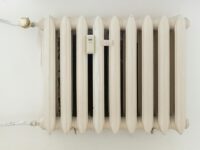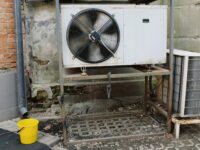The following contribution is from another author.
Installing a heat pump requires a lot of work. The equipment itself is expensive, and if you get an in-ground version, you also have to foot the cost of excavation.
At the end of that process, you should have a system that heats your home like a conventional furnace. But sometimes, that’s not what you get. Heat pumps can’t always deliver the immediate temperature increase you want.
For this reason, many people wonder whether they also need extra heating in their homes, such as a gas fireplace. Are heat pumps enough by themselves? Or do they need backup?
Is Your Heat Pump Enough?
Here are some considerations you should make to determine whether your heat pump is sufficient to heat your home or if you need additional heating.
Consider Your Location
First, you’ll want to consider your location. Heat pumps work well down to a temperature of approximately 36°F. Unfortunately, below that they can start to struggle because of the way their compressors work.
You can mitigate this to some extent with better home insulation. However, you may need to rely on additional heat sources for extended cold weather spells.
Consider The State Of Your Home
You should also consider the state of your home when thinking about whether you need a heat pump. Efficiency drops off significantly when temperatures fall below freezing, making the heat pump work harder for the same temperature increase.
Drafty homes need more heating than those with exceptional insulation. Fortunately, you can fix most drafts with cheap interventions, like door snakes and window sealing.
Homes with poor roof insulation also need more heating. But, again, you can fix this quite simply by putting down additional foam. Most homes have around 100mm, but 300mm might be closer to optimal.
Signs Your Heat Pump Is Struggling
Even considering these factors, it is still sometimes challenging to determine if you need to upgrade your home heating capacities.
Fortunately, your heat pump will usually tell you if you require an upgrade. For instance, you may need auxiliary heating if:
- You find yourself constantly relying on electric elements or oil heaters to provide your home with warm energy
- You can’t raise the temperature in your home to a comfortable level, no matter how long you leave the heating running
- You can’t maintain the desired temperature running your heat pump at maximum
- You are still shivering even after turning the thermostat up to the optimal level
If you notice any of these problems, you can modify your setup to solve them.
One option is to use a dual-fuel system. These combine heat pumps with furnaces, giving you the best of both worlds. The heat pump saves energy when ambient temperatures are sufficiently high. Then the furnace kicks in when it detects the heat in your home is falling, even when the heat pump is on. These setups balance your desire to save energy against the need for heat in the winter months.
You can also get high-temperature heat pumps. These are better at extracting warmth from colder conditions.
















